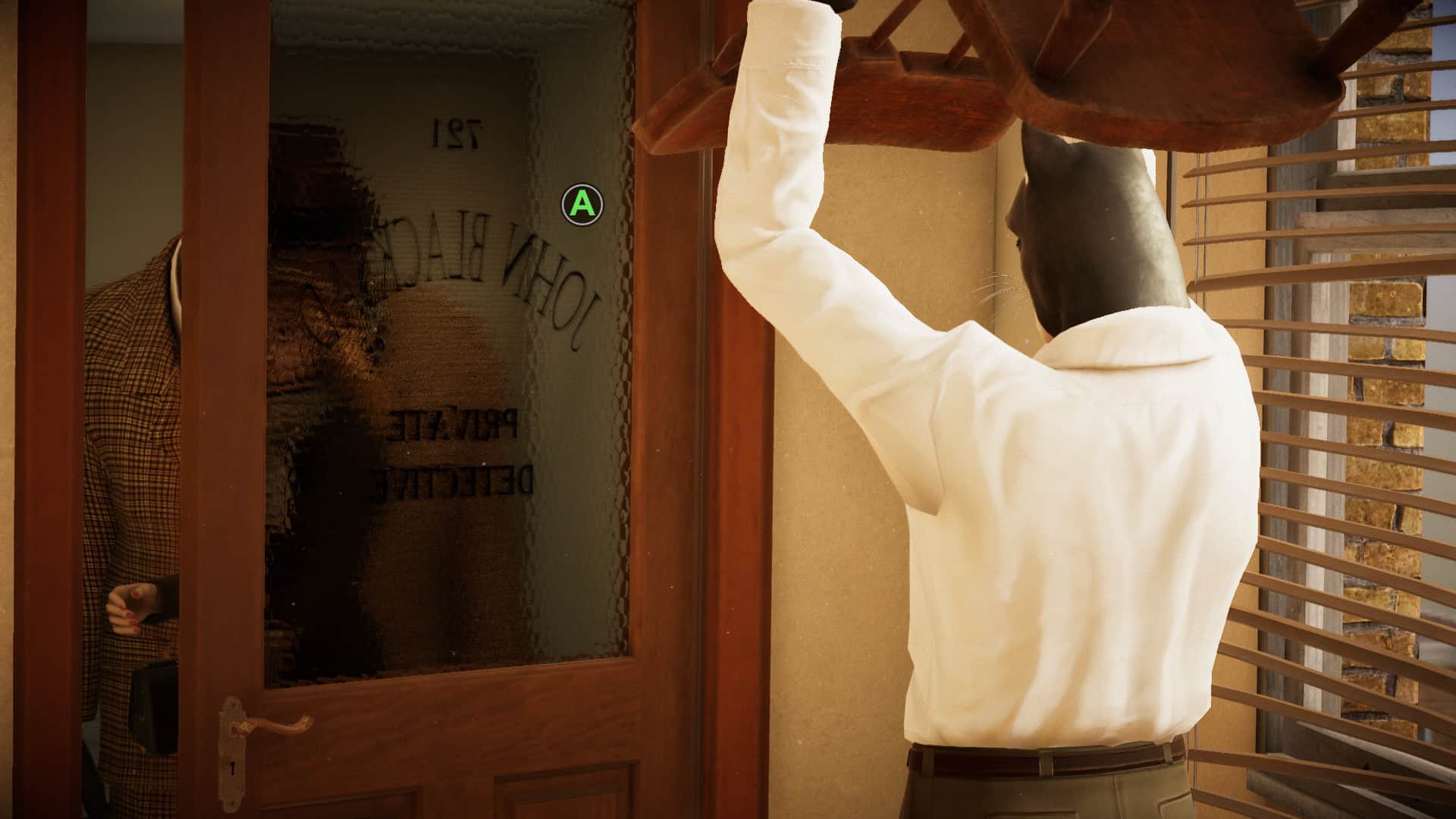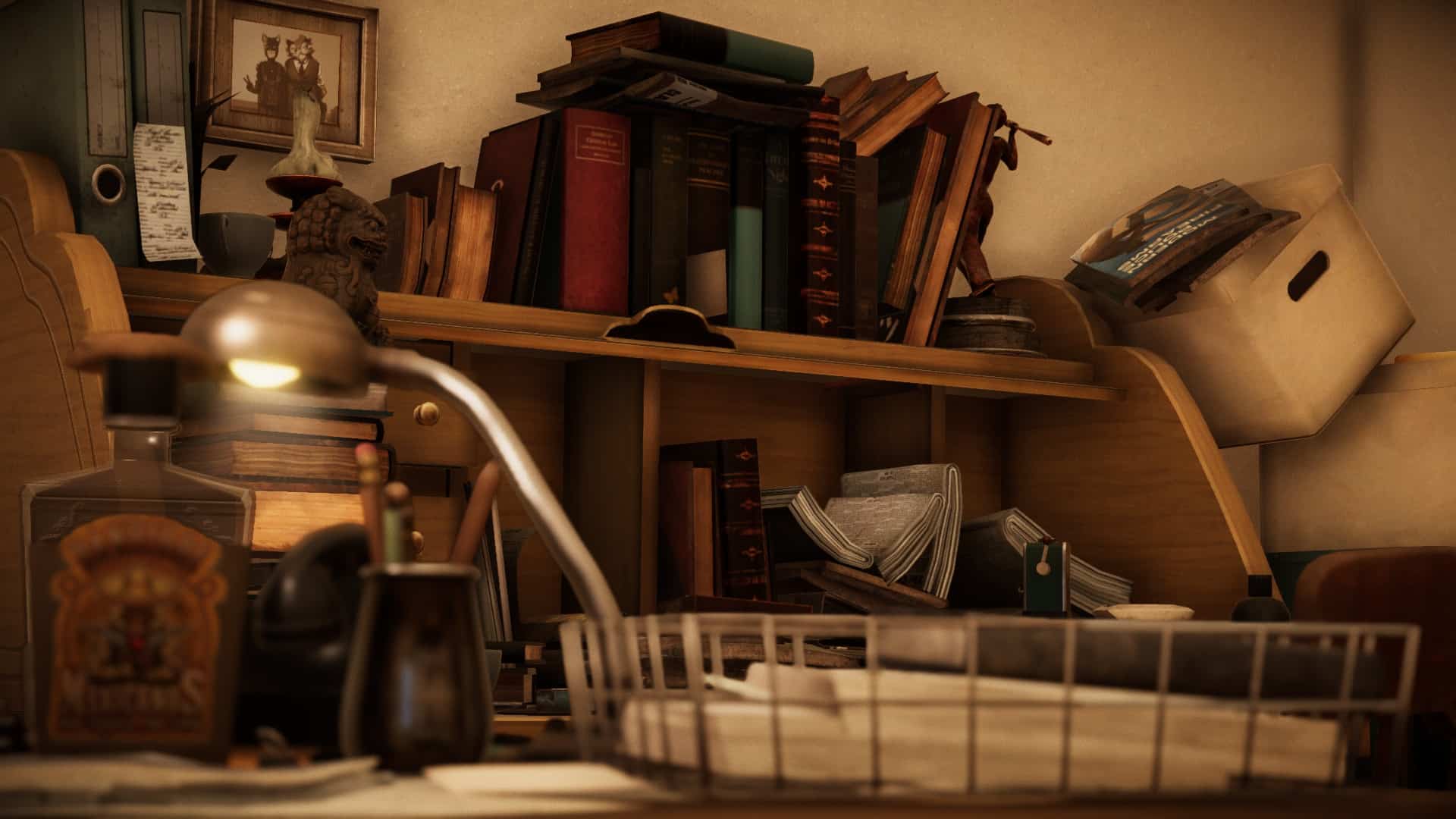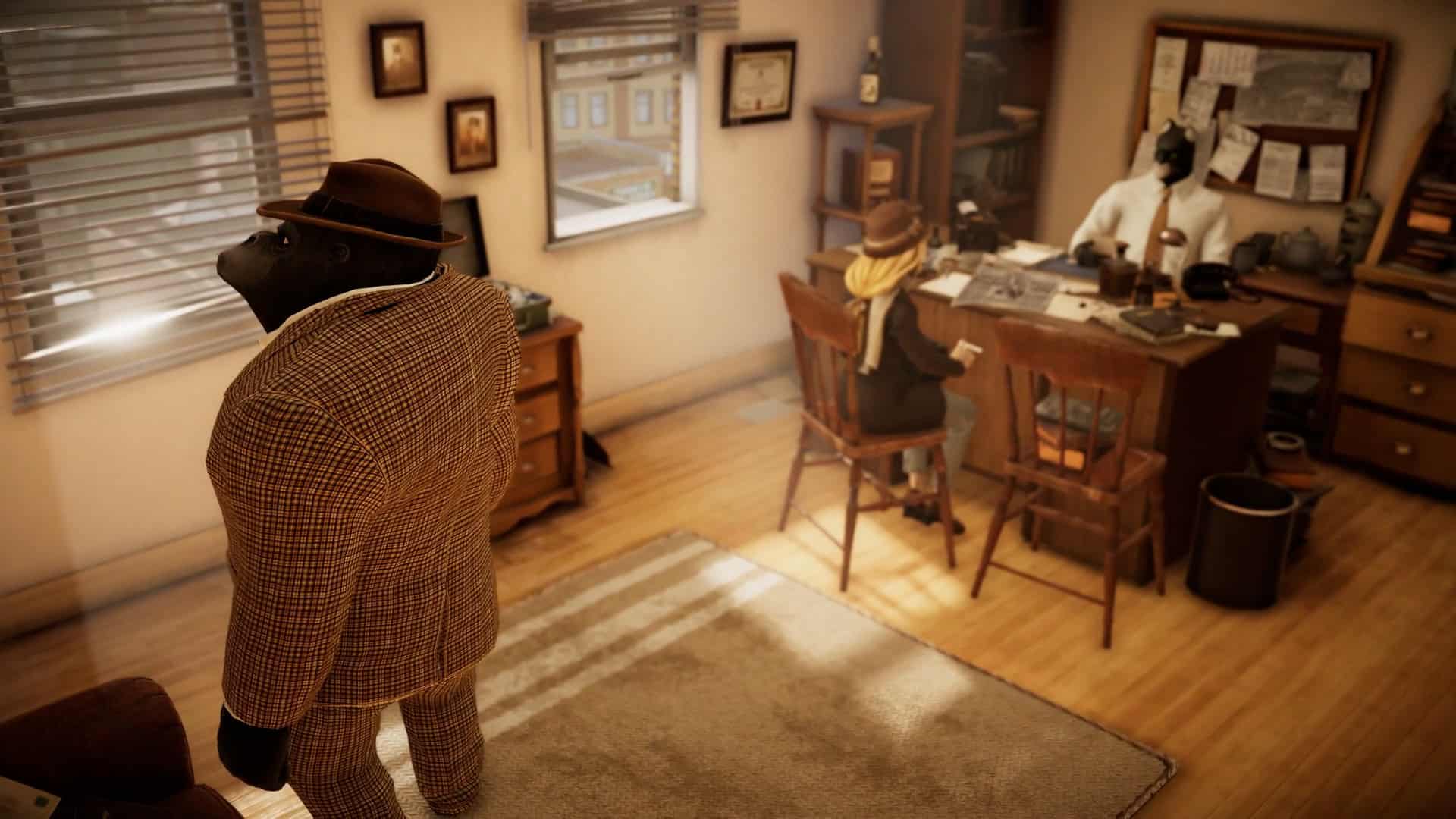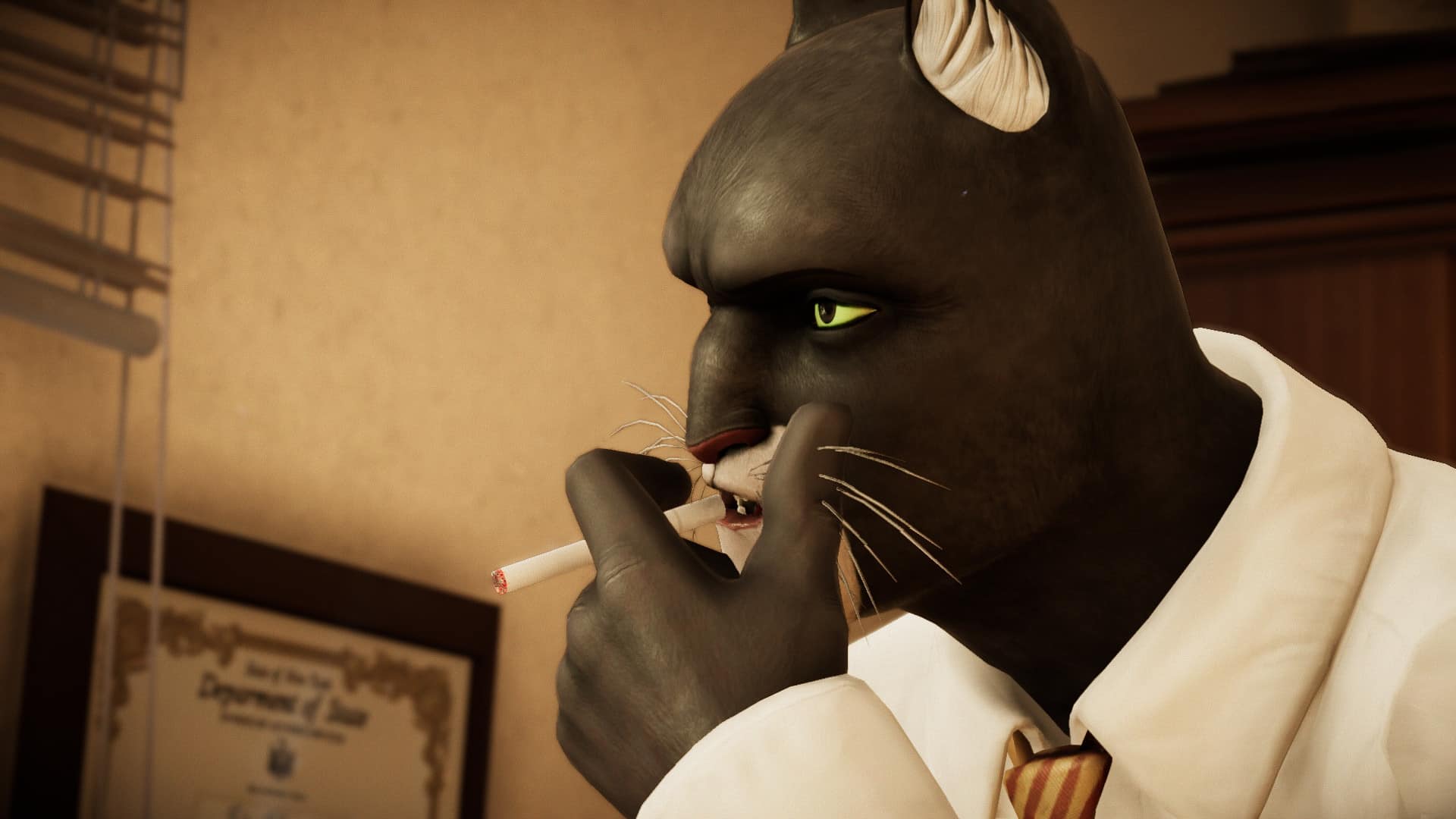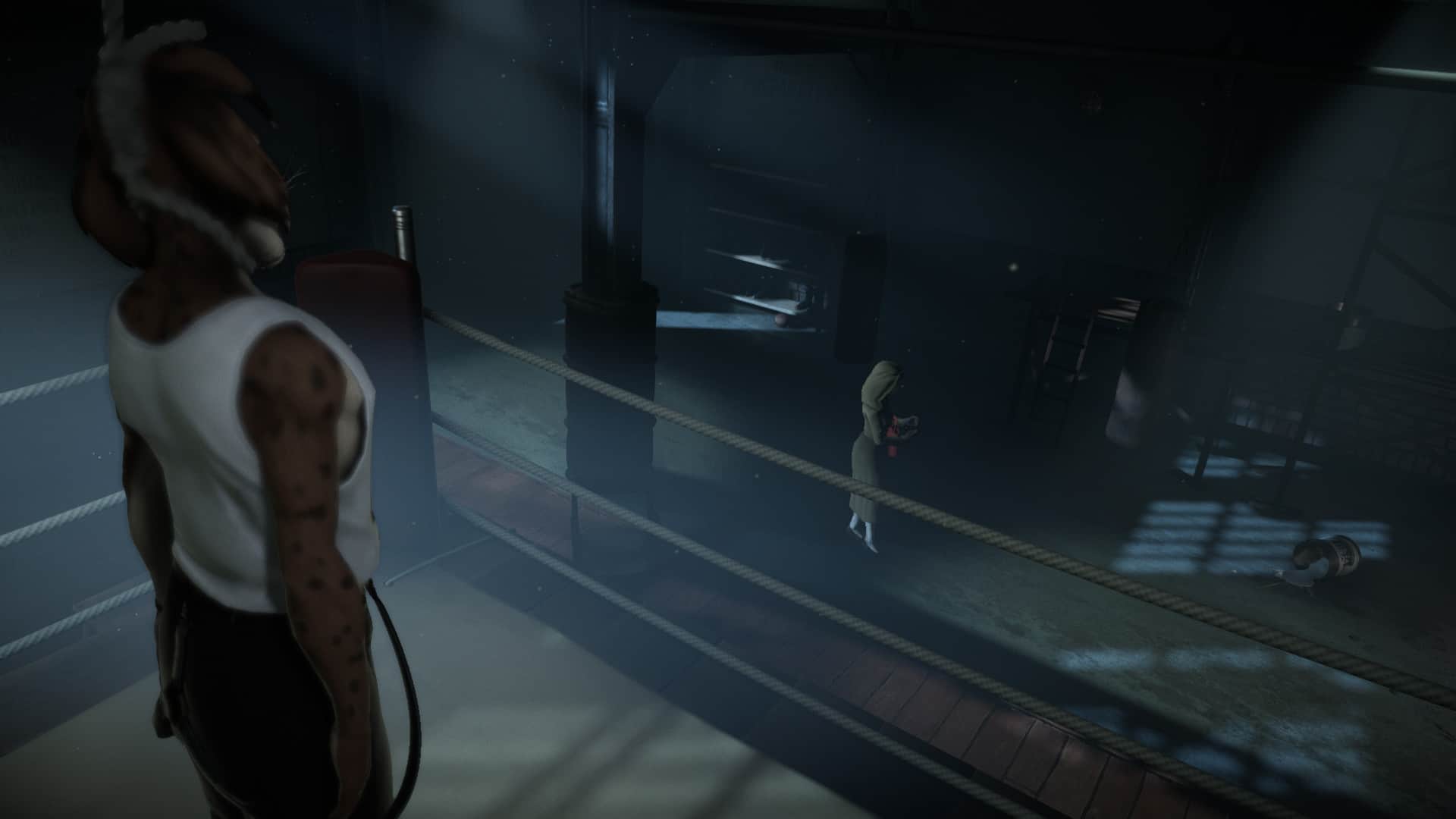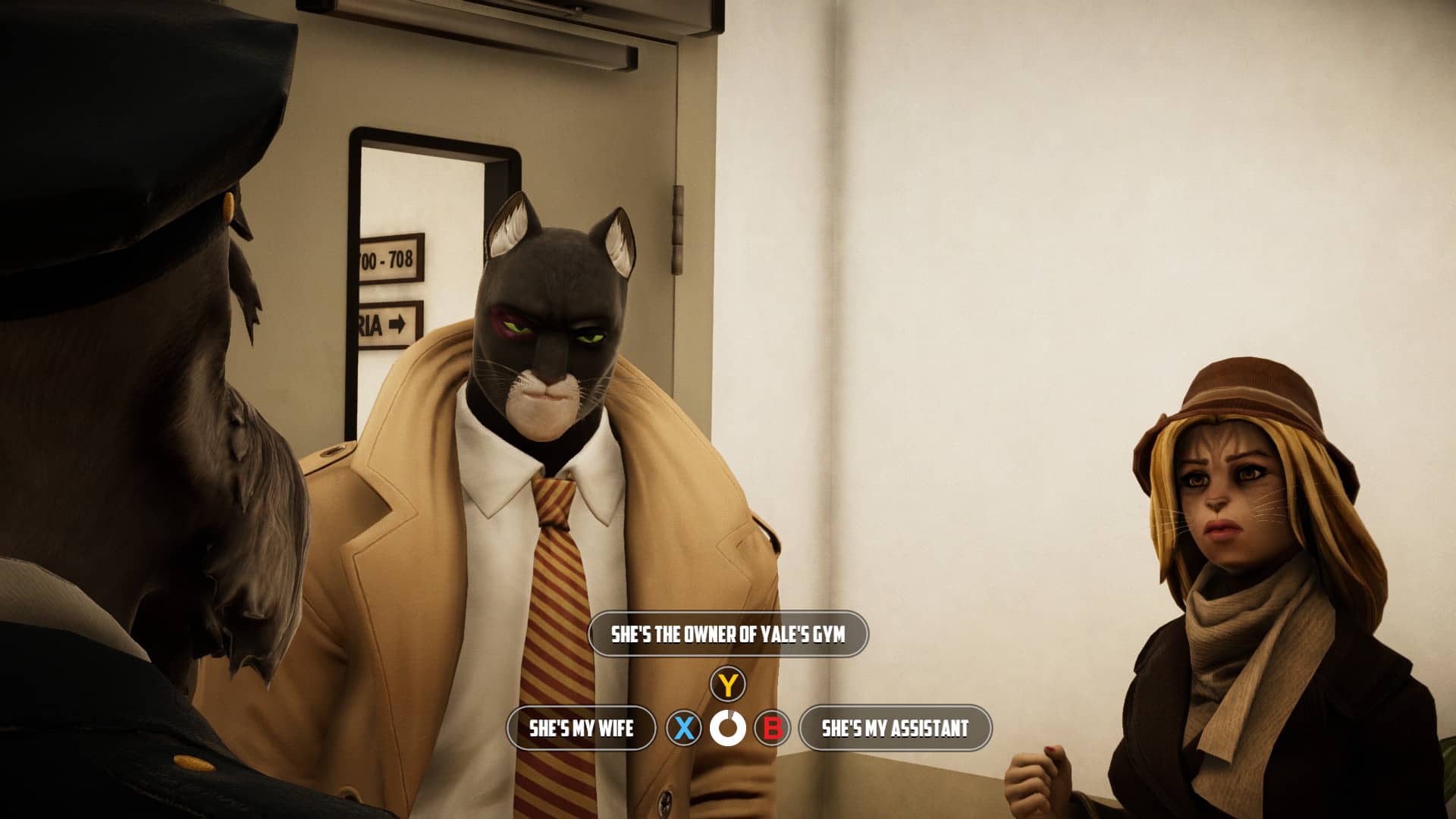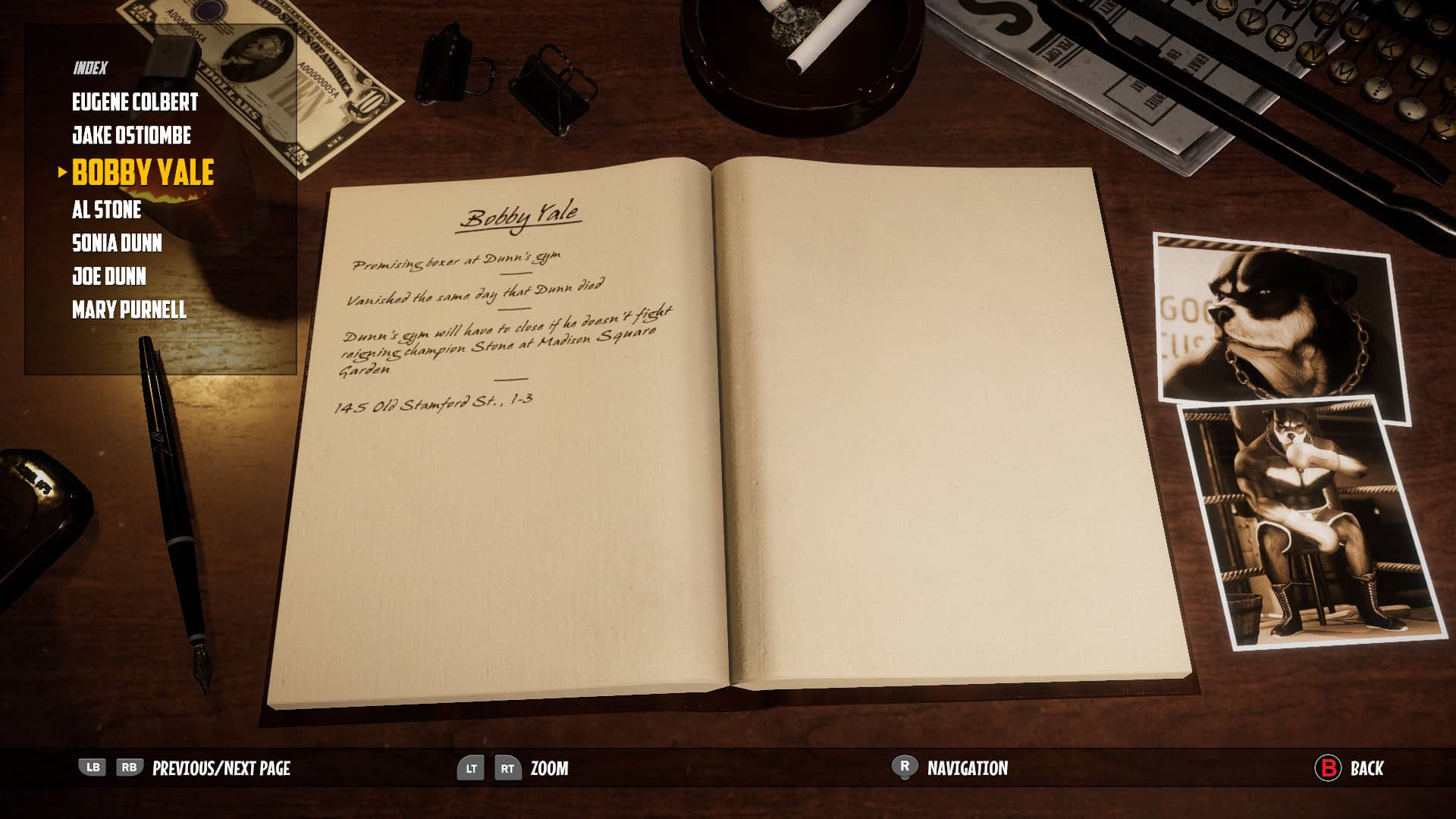Platforms:
Xbox One, PS4, ,
Released:
November 14, 2019
Publisher:
Microids
Developers:
Pendulo Studios, YS Interactive
There are some games that drain you, that leave you feeling like you’ve run a marathon by the end; Blacksad: Under the Skin is one of those games. They sit with you and settle long after you’ve completed them. They occupy your thoughts and make you doubt your choices. It’s an experience I’ve been having with a few games this year; Life is Strange 2, The Outer Worlds, Knife Sisters. But Blacksad is the first one that’s made me take a long hard look at it – and I’m not sure I liked what I saw.
You play as private detective John Blacksad as he’s hired to find a missing boxer and potentially solve a murder. This case, in typical noir fashion, will lead to you uncovering a dark and disturbing truth hiding just below the surface. As you try to solve the case you come into contact with a colourful cast of characters, some of whom are taken straight from the pages of the comics, and explore the back alleys and bustling streets of 1950’s New York.
In the tradition of the animal fable, Blacksad; Under the Skin is a morality tale, using anthropomorphic animals to comment on society. But where Aesop’s Fables, have a clear and defined moral compass, this game does not. It’s less The Tortoise and the Hare and more Animal Farm. Nothing in this story is black and white. Almost every character has a cross to bear or a secret to keep.
You’ll find yourself frequently associating with mobsters, hitmen, thugs, and thieves, all of whom can justify their actions to some degree or another. Even Blacksad blurs the line between detective and despot. With the choices the game presents you, and the way it tracks your decisions through the “Your Blacksad” system, the overarching message seems to be that morality is what you make of it.
“When the story needs a delicate touch, the game uses a sledgehammer.”
This message is nothing new for the noir genre. In fact, it’s one of its greatest strengths. The noir genre excels at portraying the gritty side of ethics and morality. But in here, the noir trappings often fall on the side of the absurd rather than the inciteful, and part of the blame falls on bad, lazy writing.
You see, Blacksad: Under the Skin, like the comics it’s based off, seeks to tackle the big issues. Tangled in with this noir mystery are matters of race, class, and gender. But the game, like the comics, handles these themes with such a sloppy approach, that it does the entire narrative a disservice. When the story needs a delicate touch, the game uses a sledgehammer.

The most prominent aspect of this is how it displays race and class. Characters that are written as white are all depicted by wild animals: each one an apex predator or majestic herbivore. In turn, most minorities are portrayed by domesticated animals and beasts of burden. The exception here being that all black-furred animals, including gorillas and chimpanzees, are meant to represent African Americans.
While both the comics and the game try and use this with the best of intentions and make some insightful comments about racism, it all comes apart under pressure. By using these conventions, the game unintentionally says some pretty awful things about the minorities it portrays.
It reeks of writers that are out of their depth, trying to write compelling narratives they know nothing about. When your protagonist is meant to be part of a minority, you owe it to yourself and your players to at least know what you’re talking about.

There’s also the game’s tendency to rely on shock value to beef up the experience. The opening menu screen features a man who has seemingly hung himself casually swinging next to the title card. Then there are characters like Quince the Pimp who serve no other purpose than to shock.
At one point you’re introduced to an adorable little girl with Angelman syndrome, only for the game to brutally kill her off moments later. It revels in the violence it shows you, like an 8-year-old who’s just watched their first M rated film.
Compounding this problem are moments where the game railroads you into awful situations for no reason. At one point you are forced to watch a man be executed by a mob boss while hiding in his lair. Any attempt to help him results in your own death. In fact, there are multiple points like that throughout the game.
You’ll often be presented with what seems like multiple choices when only one of those will actually progress the story. The others will result in you being shot down by a red panda with a Chinese accent quoting Looney Tunes.

The gameplay is a mixed bag. Most of the narrative happens through quick-time events and multiple-choice dialog, most of which feels bizarre. There’s something profoundly strange about watching a Cat and Dog talk about the repercussions of America’s “One Drop” laws and systemic racism. The quick-time events are as irritating and temperamental as ever. In most games, they’re a slight annoyance. Here they’re implemented so poorly that they actively grind progression to a halt.
Controlling Blacksad outside of those events and dialog is like trying to pilot a tank through a hedge maze. Movement feels un-intuitive and clunky, like something you would expect from a PS1 game. This hinders clue hunting, a major part of the experience, as it turns into a game of “find the prompt”.
The game also has a nasty habit of dropping you into a situation and giving you no clear direction on what to do next. This again grinds progression to a halt as you have the spend time trying to find the one interactable thing.

When you do eventually find a clue, Blacksad will make a mental note of it and write it down in his case book. The case book is functionally useless as it just acts as a Wikipedia on the characters and events of sorts. The mental notes, on the other hand, are used for a fun little mechanic.
Once you gather enough mental notes, the game will prompt you to enter Blacksad’s brain and join the dots. You must pair up connected clues so that you can make deductions. Deductions then open more clues and more connections, allowing you to get a bigger picture of the case. For such a simple addition, it so satisfying when used.
Another satisfying mechanic is Blacksad’s feline senses. The game will sometime give you a prompt to use Blacksads heightened senses to take in elements of the world around him, be their little visual details, certain sounds, or various aromas. These give Blacksad an edge in his investigation as he’s able to notice things that others may miss.
But the game is riddled with bugs. Sometimes Blacksad will get caught on geography, or characters will load incorrectly. Or their eyelids won’t load. Or certain interactable objects won’t be interactable. Characters will clip through each other, their lips will continue to move long after they’ve stopped talking and subtitles will suddenly decide not to work no matter how much you fiddle with them. I even had the game get stuck in loading loops multiple times.
Positive:
- Interesting mechanics and game play ideas
- Solving cases feels like actual detective work
Negative:
- Bug filled and glitchy
- Lazy storytelling
- Awkward controls
- Quick-time events
- Over-reliance on violence and shock
All in all, Blacksad has been a frustrating experience. There’s the potential for a good game here, but there’s no internal logic to the storytelling, controls are exhausting, it’s a bug addled mess, and its reliance on shock value and ham-fisted treatment of delicate topics drive me up the wall. Yeah, Blacksad has stayed with me long after I finished it. Not because of what it is. But because of what it could have been.
